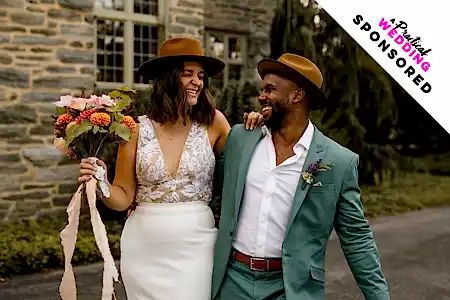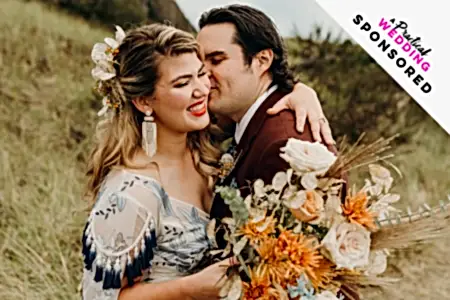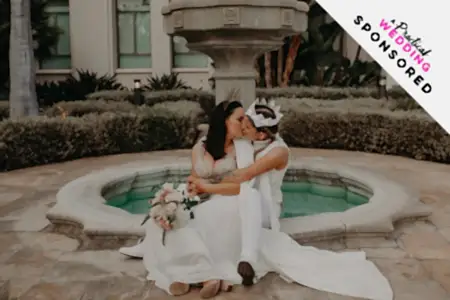
You know what happens when two old ladies try to buy a pack of cigarettes? Nothing. Because in America, we love to ignore our old people.
If you caught the first season of Netflix’s Grace and Frankie last year, you probably remember a particularly memorable scene in which the two titular characters are at a grocery store trying to buy a pack of cigarettes. Despite repeated calls to the clerk standing nearby, they’re solidly and pointedly ignored, passed over for a younger, blonder woman, and only acknowledged after banging an empty cash tray and imploring: “Do you not see me? Do I not exist?” Ultimately, they end up stealing the pack, because “invisibility is their superpower.”
Welcome to aging as a woman.
The Creeping INEVITABILITY
The weird thing is, I look forward to aging. I’m not trying to rush life by, but I legitimately think aging is the coolest thing that people do, and I look forward to every new stage. That doesn’t mean that I a hundred percent love them as they happen (whoever said that everything starts falling apart when you hit thirty wasn’t lying), but each decade of my life has encouraged and humbled me, taught me and let me teach. Ultimately I feel like gaining knowledge and wisdom is the direct benefit of aging, and I want to know everything. Far from complacently letting aging happen to me, I like being an active agent in the process.
As a longtime fan of both Jane Fonda and Lily Tomlin, I was totally committed to watching Grace and Frankie when it came out, just to see their glorious faces and pick up some fashion sense (I’m not joking, Frankie’s wardrobe is my perfection). The show’s premise is that it’s about two women who have recently learned that their husbands (of several decades) are gay. Not only are they gay, they’re actually in love with one another, and have been for years. While that makes for a splashy lede, for me, the show is really about what happens to women as we age. It takes season one a few episodes to get there, but once Fonda and Tomlin hit their groove, it’s on. And by on, I mean the show hits heavy and hard often. The scene mentioned above is hilarious, but it’s also troubling and begs the question: Does part of being an aging woman mean making peace with slowly becoming invisible? Even at thirty-one, I’m starting to feel a creeping sense of inevitable invisibility, and it’s not like I’m even close to the throes of what real female aging looks like.
SCORN AND DERISION, AKA HOW WE TREAT AGING Women
In case you’re not intimately familiar with the term, let’s break down the most basic definition of ageism: prejudice or discrimination on the basis of a person’s age. And while it’s absolutely true that elderly men constantly battle ageism, men are also celebrated for adding more years under their belts. How many times have you heard about Picasso having kids in his eighties or read an article about how hot George Clooney’s gray hair has always been (for basically his entire career)?
Ageism happens in markedly less entertaining ways all of the time, all over the world. Eight home care staff in the UK are currently on trial for “systematic, willful neglect” of Edward Hinnells, a seventy-nine-year-old dementia patient. In both print and web comics, the elderly are regularly depicted as rarely clothed, rarely clean, always fumbling and confused creatures who we alternately coddle and scorn. Considering that the elderly population in the United States is set to rise, conversations about both aging and ageism are going to become more and more vital, because it’s not just something that the seventy-plus crowd experiences. In tech, fifty is the new sixty-five and anyone deemed “too old” is having a hard time keeping a job. In fact, I have a friend who works in San Francisco’s tech world and is worried his current job is his last shot to make something of his life at tech—at thirty-five.
Though if there is one group who gets hit by a double whammy, it’s women. Many of us will likely contend with the dual forces that are ageism and sexism for much of our lives. Our society idolizes young female bodies so much that suddenly Anne Hathaway, at age thirty-two, is considered be “too old” to be a movie star. How is it even possible that Emma Thompson, age fifty-six, could be considered too old to play the love interest of Robert Redford, who is seventy-nine? As women, we’re taught that our bodies are our power… and then we’re casually discarded as “not good enough” somewhere between thirty and thirty-five, just as the men around us are gaining real power.
For women, it’s not just about wrinkles on your face, because we also don’t want to see your ancient, over-fifty boobs either. When Susan Sarandon showed off her cleavage at the SAG Awards earlier this year, the Internet lost its collective mind. The Internet also loves to rip into Mariah Carey (age forty-six) for wearing a pair of shorts or gasp! showing her midriff, and even perennial queen Beyoncé (thirty-four) has been taken to task, repeatedly, for essentially not dressing “like a mom”—a phrase that in and of itself is inherently both sexist and ageist. What do moms dress like? What do moms look like? What is it about a woman crossing pushing the boundaries after twenty-five that we can’t seem to handle?
is invisibility a superpower?
I first began wondering about ageism a few years ago, when all of the sudden I realized that strangers on the street weren’t harassing me as much as they used to. On the surface, that’s great. It’s not like I wanted that kind of attention, and it’s not like I missed it, but I think a lot of females in the United States grow up just… dealing with it, at best. So when all of the sudden you realize that no, you’re probably not going to get offered a free latte anymore just because, or that yes, you’re slowly becoming invisible as you walk down the street, you also realize you’re looking down the barrel of the rest of your life. And sure, it’s fantastic to NOT feel worried about walking to the grocery store alone at night, but it’s not fantastic to feel like I don’t exist because my body isn’t as “desirable” as it was.
As much as I’m feeling a varying degree of things (Confusion? Elation? Sadness? It’s weird in my head right now) due to the drop off of interest in me, right now I’ve never been more engaged with the women in my life. Those relationships are only growing in depth, emotion, and real friendship. I’m learning more from the women I know than I ever have while simultaneously enjoying not having to deal with nearly as much shit from men as I have in the past.
But how long does it last? Because when Frankie says, “If you can’t see me, you can’t stop me,” I raise a fist in solidarity while my insides churn. I don’t want to be irrelevant, either. I don’t want to be disqualified from doing all the cool things I’m now experienced to do, just because I’ve been on the planet too long with a vagina.
why “grace and frankie” should matter to you
What’s lovely about Grace and Frankie is that the show doesn’t hold back—once the two have bounced back from their emotional turmoil and trauma, both main characters start exploring this new world they find themselves single in. It turns out they’ve got a lot left to give, and the show’s conversation rapidly shifts to talking about sex, bodies, and physical attraction between people who are over seventy. I’m thirty-one, but I’m all over this topic because guys, I hope I’m going to be old one day. And it turns out, people over seventy are having a pretty good amount of sex. And I hope I’m in the 31 percent of women who are still having sex when I’m seventy-five.
But when gerontophobia, aka a fear of the elderly, runs rampant and elderly women are regularly beaten, things feel a lot more serious than they did when we laughed when Frankie couldn’t figure out how to work her computer. Sure, the computer scene was funny, but more importantly, it highlighted a lingering reality: we don’t include the elderly in our world, digital or otherwise. I doubt anyone was surprised that Frankie couldn’t figure out how the Internet works, but I was asking myself why her kids hadn’t talked to her about the Internet twenty years earlier, when they were teens and first getting online. Sure, bringing an elderly person into the digital age isn’t always easy, but isn’t that kind of teaching worth it?
And imagine this: How frustrating do you think the elders in your family find it when you don’t have ten minutes to listen to advice they’ve gleaned after seven decades on the planet? What kind of patience do you think it takes to not stab you with a fork when your back is turned? It’s like I find myself near constantly telling my seven-year-old these days, pause and consider that maybe they, as someone who has lived longer than you, might be able to bring some hint of wisdom to any given situation.
aging is better than the alternative, no?
What it comes down to is that we’re all going to age, or we hope we are. You can try the creams and the potions and augment your body and hell, maybe even a little surgery, but there’s little to nothing you can do to actually slow down the march of time. Since aging has to happen anyway, I’m into choosing to be proactive and celebratory about it.
But few things sound as bad to me as becoming the eccentric grandma that everyone loves because they have to, the one that everyone politely entertains but never engages, the one who sits by herself in a chair, waiting for someone (anyone) in the room to say more than hi or inquire about more than the house shoes she got for Christmas last year.
So while I wait, I’ll be happily rocking the crop top I recently bought, shaking down people older than me for wisdom, treating the elderly like the elders they are, and refusing to go invisibly into the long… rest of my life.






